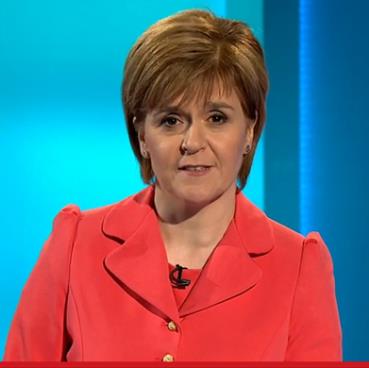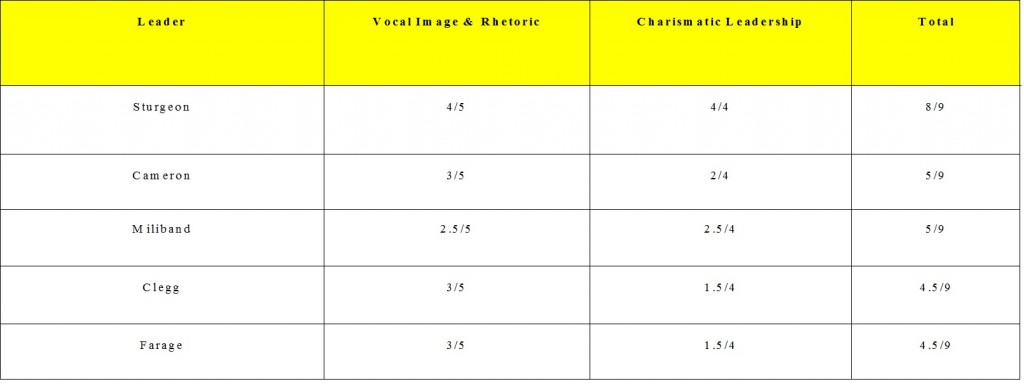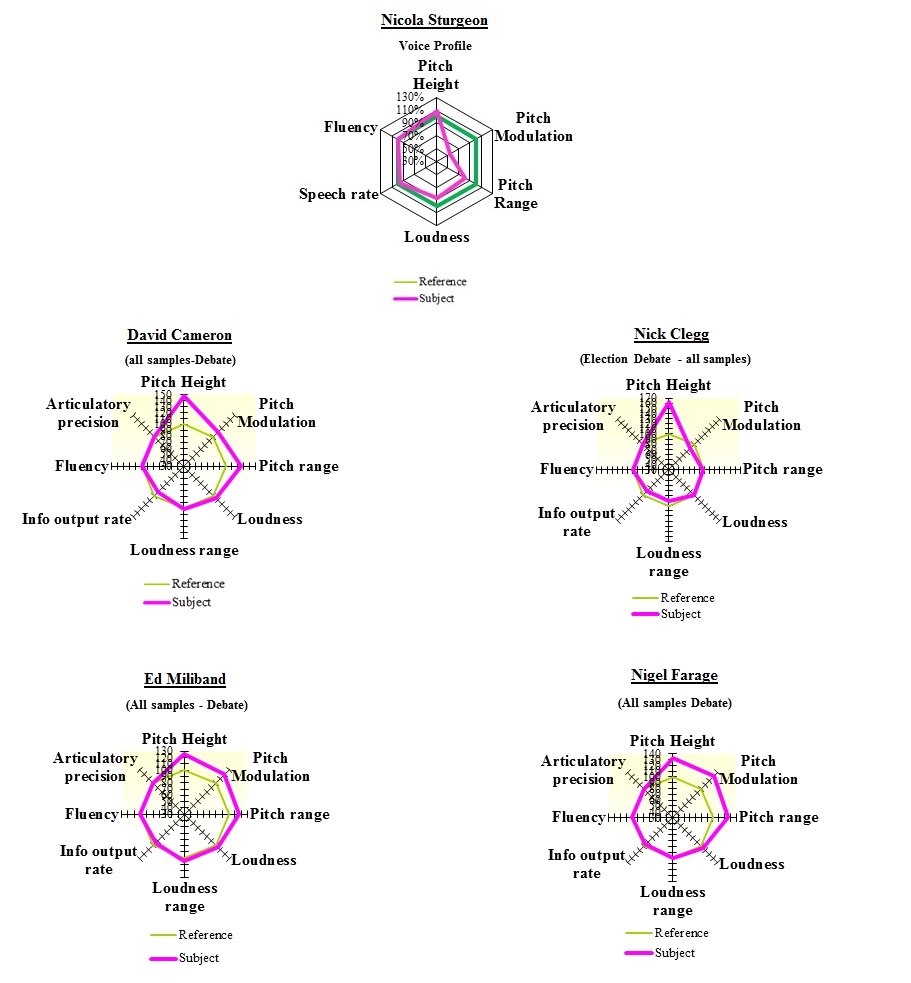David Cameron hailed his recent surprise win as the “sweetest victory” in a generation. In reality, he won the UK General Election because he “won” England. The outright winner in Scotland was Nicola Sturgeon whose hegemony clearly influenced English voters who may have voted “for Nurse for fear of something worse”. A dramatic and unprecedented result I think we all agree.
But how did this General Election confound all the widespread predictions of another hung Parliament and deliver such an earth-shattering result?
What can we all learn from the “Sturgeon phenomenon”?
We believe the seeds were sown in that 7 way live TV debate. Since then throughout the long weeks of campaigning, none of the 4 major political leaders convinced us that their broadly similar, often common sense, policies were credible or even attractive. While Nicola Sturgeon successfully convinced almost everybody in Scotland that her implausible prescription for a “DUK” (Disunited Kingdom), is both credible and attractive, how?
Could the presentation style have anything to do with this?
With the help of our partners at the Vox Institute in Geneva, we have analysed the speaking styles, vocal and facial expressions of the key candidates. What we discovered was that David Cameron, Ed Miliband, Nick Clegg and Nigel Farage all have carefully tutored distinctive styles.
These carefully practised styles sacrificed naturalness for a “model delivery”. Our profiling of the four voices reveals an unnatural similarity, suggesting too much practice and not enough passion.
They also share a common characteristic of signalling anxiety with their message. Not surprisingly anxiety is non-congruent with credibility. If the speaker is anxious then the listener instantly detects that and usually rejects the message.
Nicola Sturgeon’s vivacious enthusiasm, on the other hand, is as infectious as it is compelling. Our analysis shows how she differs from the 4 men in this pursuit and why she will probably be remembered as ‘the winner.’
Overall a fascinating contest and one we believe which stands out for a number of reasons:
Too similar?
More candidates appear to result in less differentiation. There was not enough to separate the candidates in terms of presentation style- until Sturgeon’s appearance, they were too similar.
Too much distraction?
The only speaker who was different in terms of presentation style was Nicola Sturgeon who proved a big distraction, as her impact was significant and yet she was not a candidate to be Prime Minister.
Relative importance of Body language
The work of the psychologist Albert Mehrabian (1970) broke down our understanding of another person’s communication to “the Words, the Music (how the words are said) and the Dance ( Body Language)”. His studies showed that over 50% of communication is “Dance”. People are subconsciously better at reading non-verbal cues than they realise and easily spot disconnects in congruency between the three elements. E.g. saying you are confident about a point, delivering it in a flat voice, whilst your face conveys anxiety and worry. People are subconsciously hard-wired to believe the non-verbal message. So people don’t trust the leaders even if they cannot pinpoint why.
The Underdog factor
People like and will get behind an underdog who will take on the “Establishment” regardless of the message. Nicola Sturgeon was given the oxygen of publicity by appearing on the live debates and was overnight catapulted to fame. Parallels can be drawn back in 2010 to the performance of Nick Clegg at the first live debate which took him from relative unknown to deputy PM. Recognising the value of the “dance,” he allegedly rehearsed his speech 35 times. The rapid rise of Nigel Farage and UKIP from unknown to a double-digit percentage following of the electorate can similarly be attributed to the same factor.
So in conclusion, voters want and will vote for leaders who come over as natural, not contrived. If you are natural then people will trust you more and you will win more hearts and minds. Surely this is a clarion call for greater authenticity, honesty and integrity in our politicians and a return to the old fashioned value of service to the nation.
So in the absence of our leader’s noses visibly growing longer and revealing all, leaders of the future could learn from this experience by remembering the unavoidable truism, people like political leadership, they dislike political management.
James McBrien
Managing Director
Clearwater Advisors
Appendix 1
You will see from the table below that she stands out in terms of scores for vocal image & rhetoric and charismatic leadership. The other candidates divide into two subgroups, Miliband and Cameron, Farage and Clegg. So we have two “2 horse races” running in parallel. But in both instances the difference between them appears insignificant.


